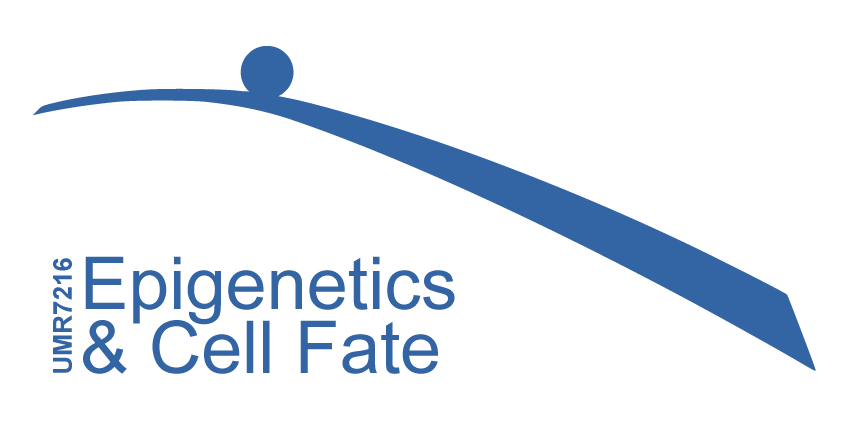Stress pathways in neurodevelopmental disorders
We showed recently that the stress response and the stress proteins are decreased in the rare neurodevelopmental disorder, the Rubinstein-Taybi syndrome. We showed this phenotype is due to the destabilization of the stress factor HSF2. The stress response is also impacted in other neurodevelopmental disease.
We thus seek to clarify better the role of the stress factor HSF2 in neurodevelopmental pathologies.
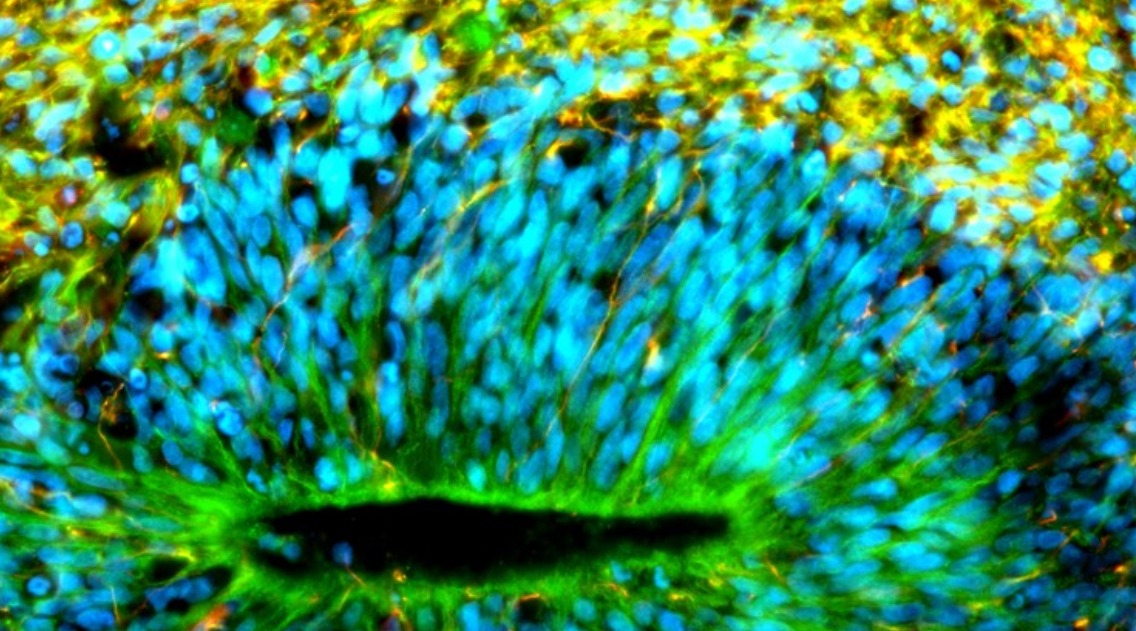
Brain organoid
©MezgerGroup, 2023
- We use tridimensional models of neurodevelopment (with the enSCORE platform): human cerebral organoids that are differentiated from induced-pluripotent stem cells (iPSCs), that derived from cells of peripheral tissues of patients with neurodevelopmental disorders.These models allow the access to the first steps of the human neurodevelopment, at a cellular and structural level, really close to what occurs in the human developing brain.
- We collaborate with mathematicians in interdisciplinary projects to capture the most relevant phenotypes, dependent of the HSF-pathway, thanks to their development of new methods in deep learning adapted to our studied models.
- We are mainly interested in understanding the role of the stress pathways in those conditions. With our partner from biomedical company, we develop screening strategy for drug screening with therapeutic potential.
Read more
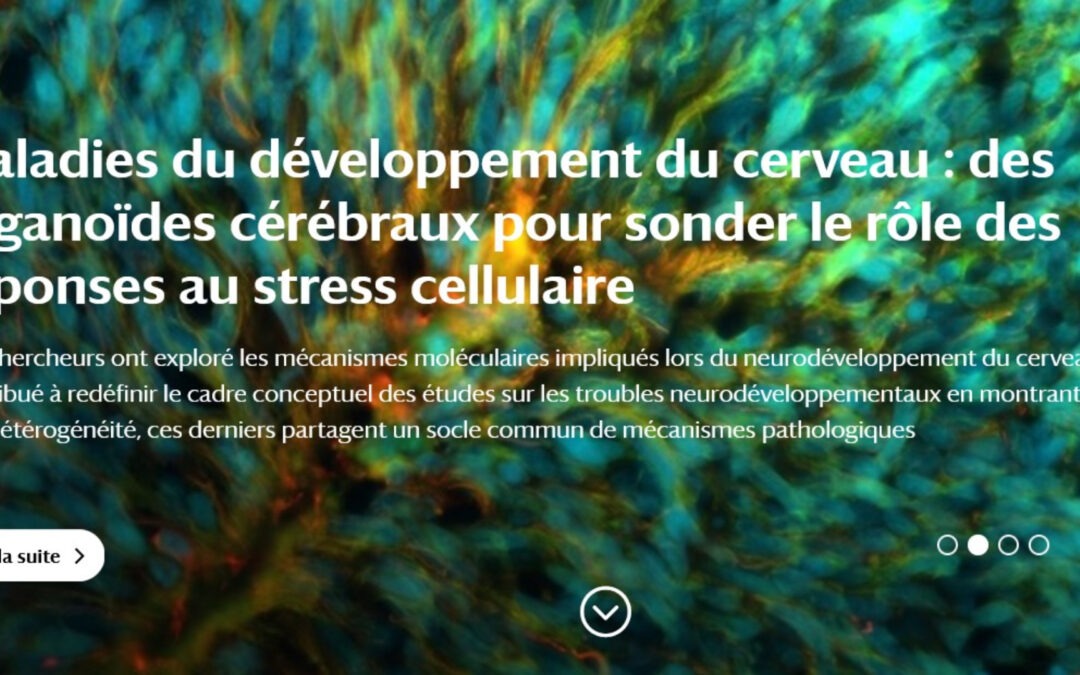
Focus on our research using brain organoids in the news of UP Cité
Paris Cité University published a review on our study using brain organoids to better understand neurodevelopmental disease. Catch a glimpse of the article here. © News, Université Paris Cité Read more
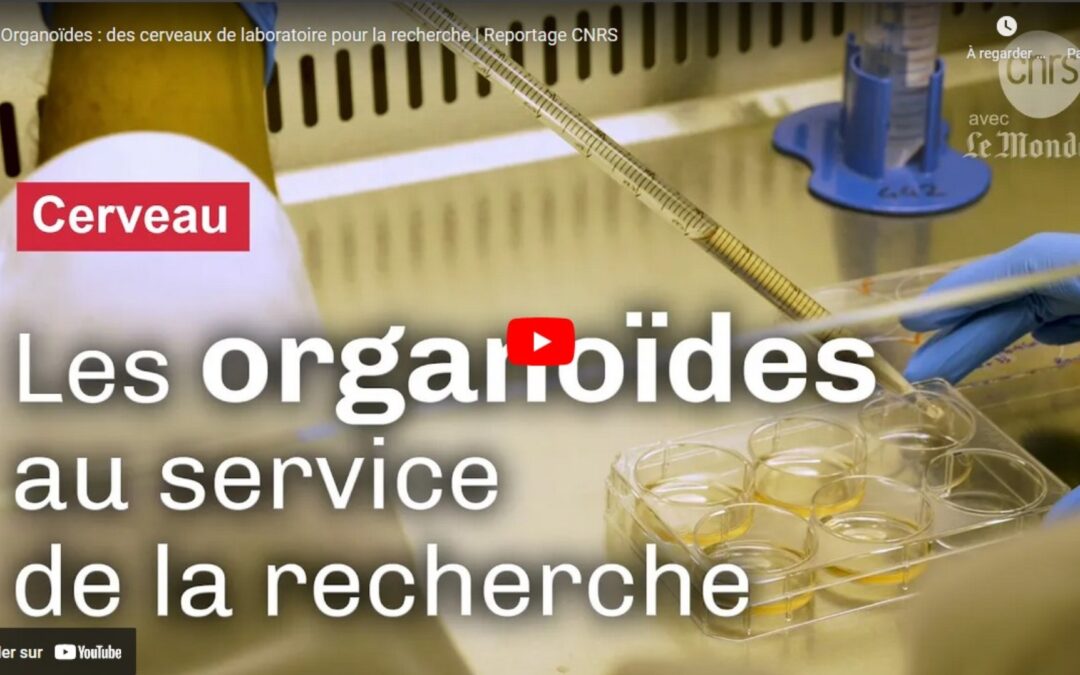
Brain organoids, new advances in research
"CNRS Le Journal" and "Le Monde" published a video article describing the new technical advances in the field of neurobiology, the preparation of human brain organoïds. They visited the Mezger laboratory to have a look at their experimental set up using cerebral...
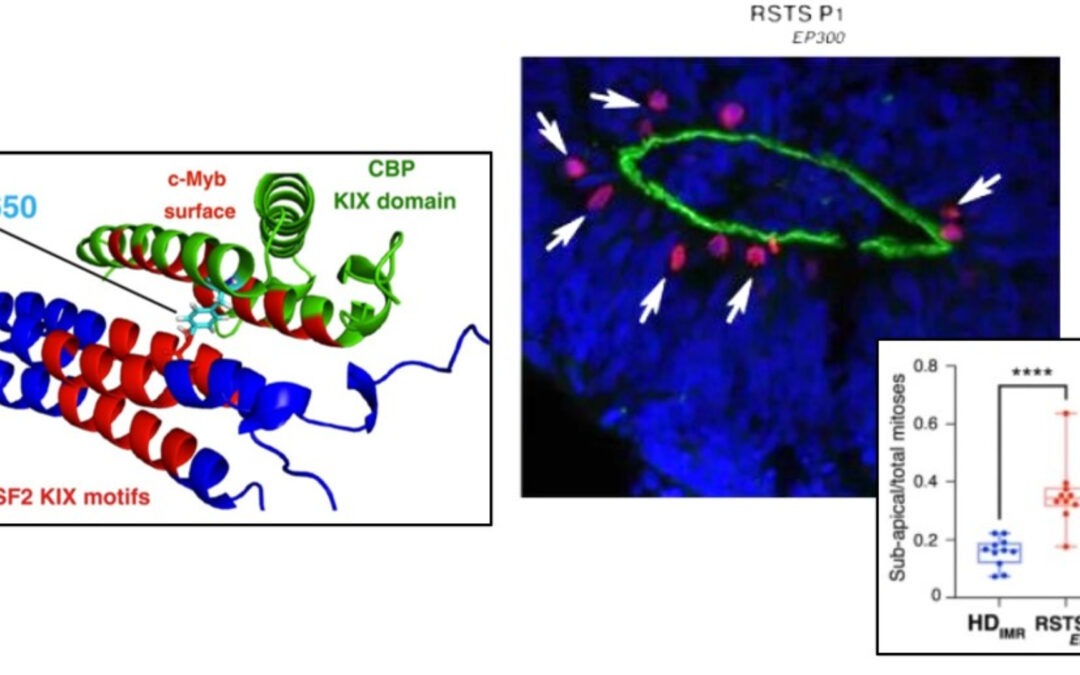
Congratulations to Aurélie De Thonel and the Mezger Lab for their paper in Nature Communications
Aurélie De Thonel and the V Mezger lab released a paper in Nature Communications elucidating the relationship between CBP and HSF2 in a neurodevelopmental disorder, CBP-HSF2 structural and functional interplay in Rubinstein-Taybi neurodevelopmental disorder....
